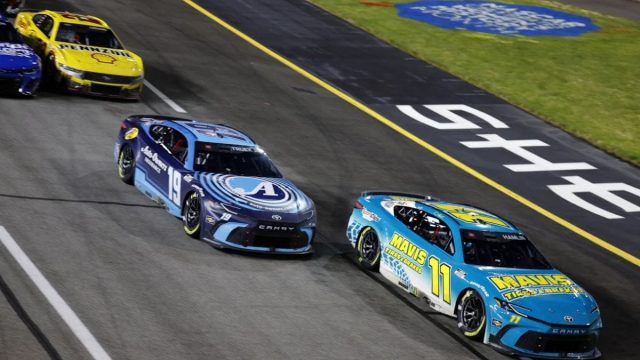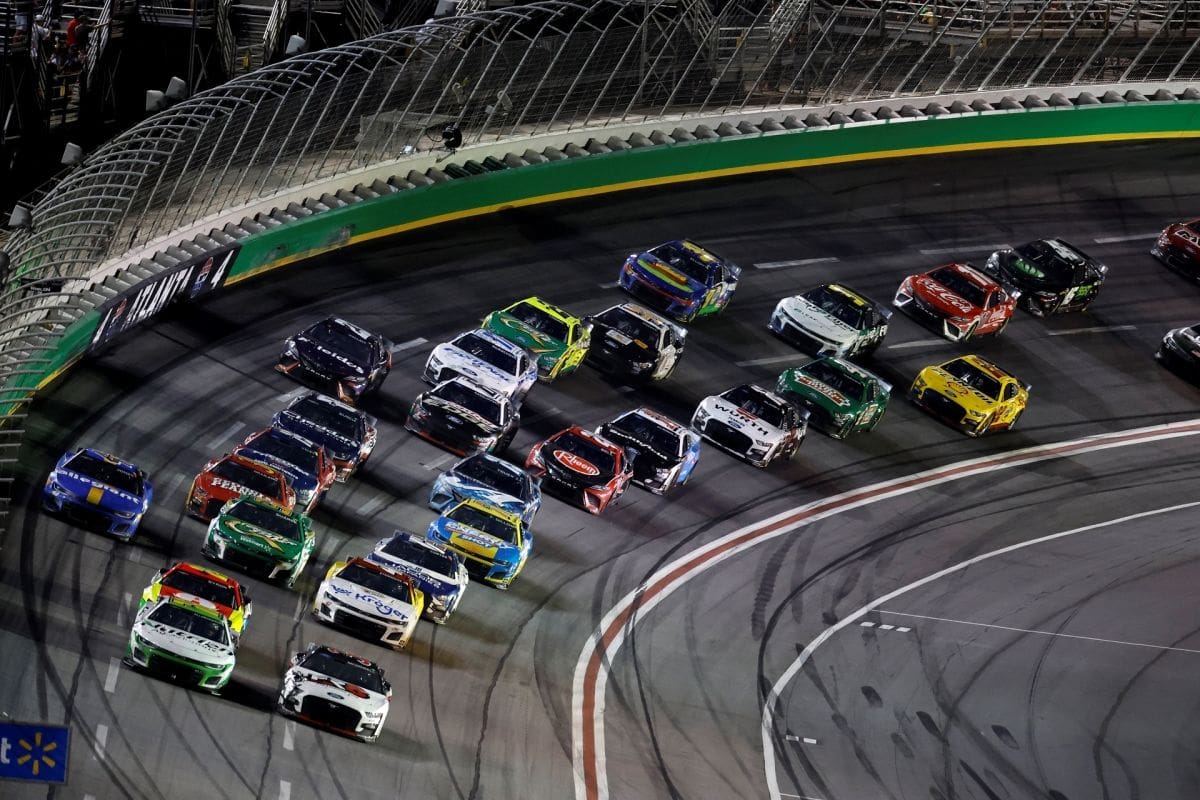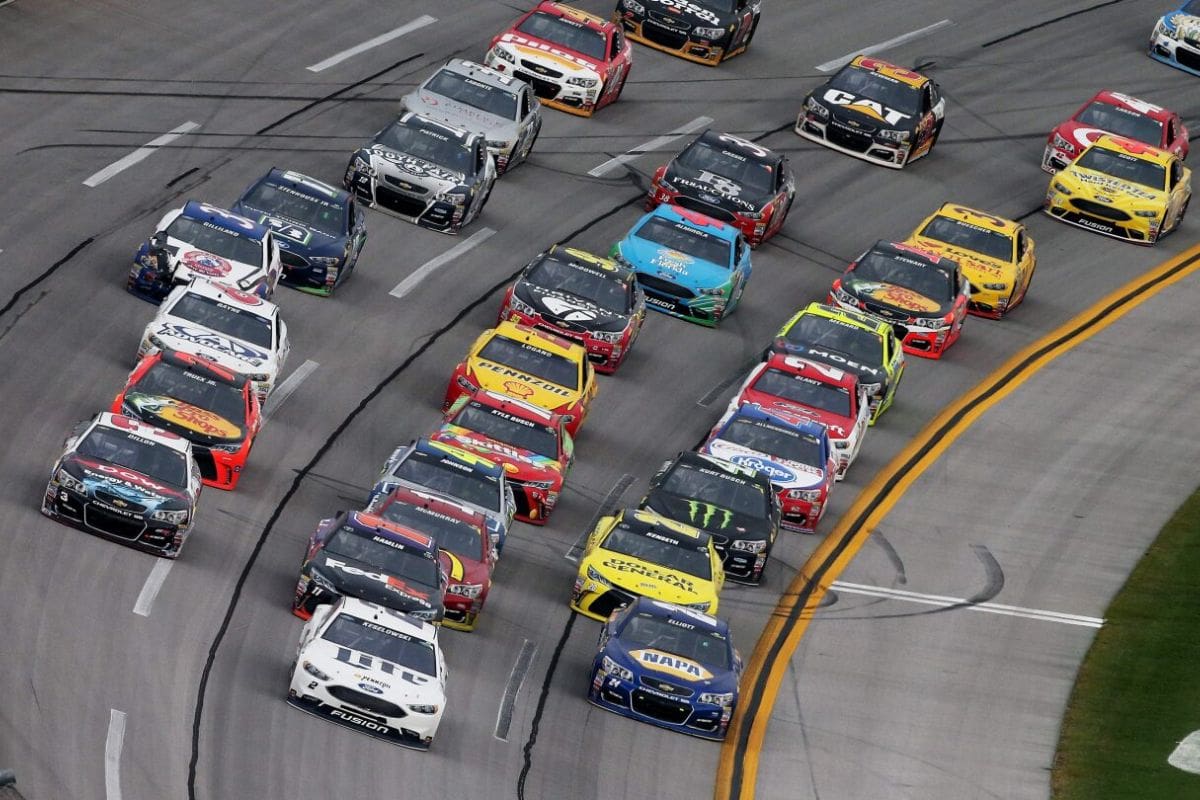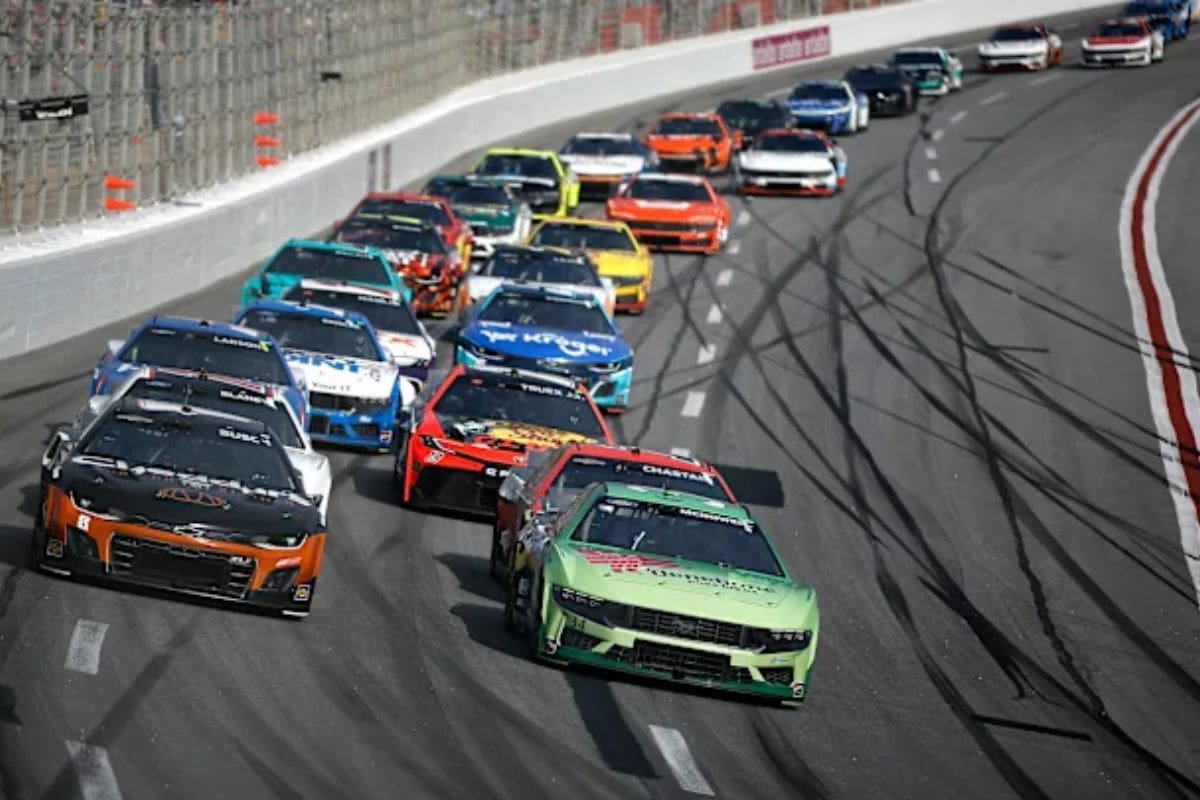NASCAR and 23XI Racing Poised for a Legal Battle: As tensions rise between NASCAR and 23XI Racing, the potential for a legal confrontation looms large, particularly in regard to insider Curtis Polk’s recent comments regarding the charter agreement. Polk’s assertion that the current contract may infringe upon “essential rights” suggests a considerable grievance that could reshape the competitive landscape of the sport. This situation raises questions about governance and equity within NASCAR and invites scrutiny of how contractual dynamics can affect team operations and competitive integrity. What implications might this dispute hold for the future of both parties involved?
Key Highlights
- 23XI Racing is considering legal action against NASCAR over perceived coercion in the latest charter agreement negotiations.
- Curtis Polk’s statements indicate a calculated approach, suggesting they are preparing for a potential dispute.
- Legal experts warn that confronting NASCAR could present significant challenges in sports law.
- The dispute may have far-reaching consequences for other teams and the overall regulatory landscape in NASCAR.
- Ongoing public relations efforts will emphasize 23XI’s commitment to fairness and transparency in the sport.
The Dispute and Team Stance
The recent standoff between 23XI Racing and NASCAR highlights a significant rift in the governance of the sport, particularly regarding the integrity of the charter system. 23XI Racing, alongside Front Row Motorsports, has expressed strong reservations about the latest charter agreement, alleging that teams were coerced into compliance through the threat of losing their charters. This unfolding drama is representative of a broader tension within NASCAR, as the charter system serves as an essential framework for team operations, financial stability, and competitive equity.
The timing of the charter agreement has raised questions about NASCAR’s governance practices, given that teams were presented with the document just hours before a signing deadline. Such a rapid timeline may have left little room for thorough deliberation, prompting concerns about the strain exerted on teams to conform.
23XI Racing’s refusal to endorse the agreement highlights a fundamental ideological divide, where the principles of fair negotiation and transparency are being called into question. Moreover, the allegations of coercion could signal deeper systemic issues within NASCAR’s regulatory environment, potentially undermining trust between teams and the governing body.
The fact that 23XI Racing and Front Row Motorsports are standing firm against what they perceive as intimidation tactics may indicate a critical moment in the sport’s governance. This dispute not only threatens the cohesion of team relationships but could also have lasting implications for future agreements and the stability of the charter system itself.
Insider Perspectives and Potential Legal Action
Several industry insiders have weighed in on the escalating tensions between 23XI Racing and NASCAR, suggesting that the potential for legal action looms large. In a recent episode of The Teardown, NASCAR analysts Jeff Gluck and Jordan Bianchi articulated their perspectives on the situation, with Gluck hinting at a possible courtroom showdown. He noted that 23XI Racing might view litigation as a viable strategy to either secure concessions from NASCAR or to fundamentally alter the sport’s operational model.
“If they [23XI] think, ‘Hey, we can drag NASCAR into court and either get a settlement from this or get NASCAR to make the concessions we’ve been asking for, or take it all the way and change the model of the sport, essentially.’”
“Maybe that’s what they’re trying to do, and they feel like they’re trying to do it for the other teams as well.”
It’s a very, you know, I didn’t think it would get to this point, but now for the first time I’m seeing, this could be a long, long protracted battle if this does not come to a head. Because it’s not like, I just always thought, ‘Okay December 31st, they have to do it because they’re not going to want to lose their charters, they’re not going to want to let all this stuff go.’ Maybe they’re willing to walk the plank and see what happens? I don’t know, is that possible?” – Gluck
This analysis raises questions about the motivations behind 23XI Racing’s actions. If the team believes it can utilize legal proceedings to advocate for broader changes benefitting the entire series, the implications could be considerable. The potential for a prolonged legal battle appears increasingly plausible, particularly as 23XI Racing may be willing to risk their charters for a more favorable competitive landscape.
Curtis Polk’s Statements and Legal Language
Amidst the ongoing tensions between 23XI Racing and NASCAR, Curtis Polk’s recent statements reveal a calculated approach that highlights the potential for a legal confrontation. As co-owner of 23XI Racing, Polk’s remarks are steeped in a sense of urgency and tactical intent. His framing of the situation suggests that the team has engaged legal counsel, preparing for a possible dispute that could reshape the competitive landscape of NASCAR.
Polk’s choice of words indicates a deliberate tactic designed to rally support and draw attention to perceived inequities in the contractual negotiations. By characterizing NASCAR’s contract offer as a removal of “essential rights,” he positions 23XI Racing not merely as a participant in a commercial activity, but as a defender of fundamental fairness in the sport.
“The contract offer took away essential rights, and we believe that all teams, including those who signed, may not have been given a true opportunity to negotiate or fully understand the implications of the contract terms.” – Polk
Moreover, his comparison of 23XI Racing to David facing Goliath encapsulates the power dynamics at play. Polk’s emphasis on NASCAR’s “superior bargaining power” and “predatory practices” evokes a narrative of underdog resilience, while simultaneously casting NASCAR in a less favorable light.
“NASCAR has consistently refused to deal with 23XI – these negotiations, we are David facing Goliath.”
“NASCAR has superior bargaining power and undue influence over the sport and the charter process.” – Polk
The Path Forward
Navigating the complexities of this legal confrontation will require 23XI Racing to tactically utilize its position while addressing the broader implications of its dispute with NASCAR. The terms articulated by team co-owner Curtis Polk—”essential rights,” “opportunity to negotiate,” “predatory practices,” “superior bargaining power,” and “undue influence”—serve as a foundation for the potential legal arguments ahead. These phrases not only denote important legal principles but also reflect a broader narrative of power dynamics in motorsport.
As the situation progresses, 23XI Racing must consider both the immediate and long-standing ramifications of its legal stance. The team is poised to challenge NASCAR’s authority, but this will necessitate a detailed approach that balances assertiveness with tactical prudence. Engaging in a public relations campaign that emphasizes their commitment to fair competition while simultaneously preparing for litigation will be essential.
Legal experts may advise 23XI Racing to investigate mediation or arbitration as alternatives to a protracted courtroom battle, which could expose both parties to considerable reputational risks. Additionally, the implications of this dispute could reshape the regulatory landscape of NASCAR, influencing how contracts are negotiated and enforced in the future.
News in Brief: NASCAR and 23XI Racing Poised for a Legal Battle
The potential legal confrontation between NASCAR and 23XI Racing highlights substantial concerns regarding contractual equity within the sport. As tensions mount over the charter agreement, the implications for competitive integrity and team governance become increasingly pronounced. The insights provided by Curtis Polk suggest a calculated response from 23XI Racing, emphasizing the necessity for a thorough examination of the existing contractual framework. Ultimately, this situation may prompt a reevaluation of stakeholder rights and responsibilities within NASCAR’s operational landscape.
ALSO READ: NASCAR Walmart Sign Incident: Insiders Express Frustration Over Safety Protocols



